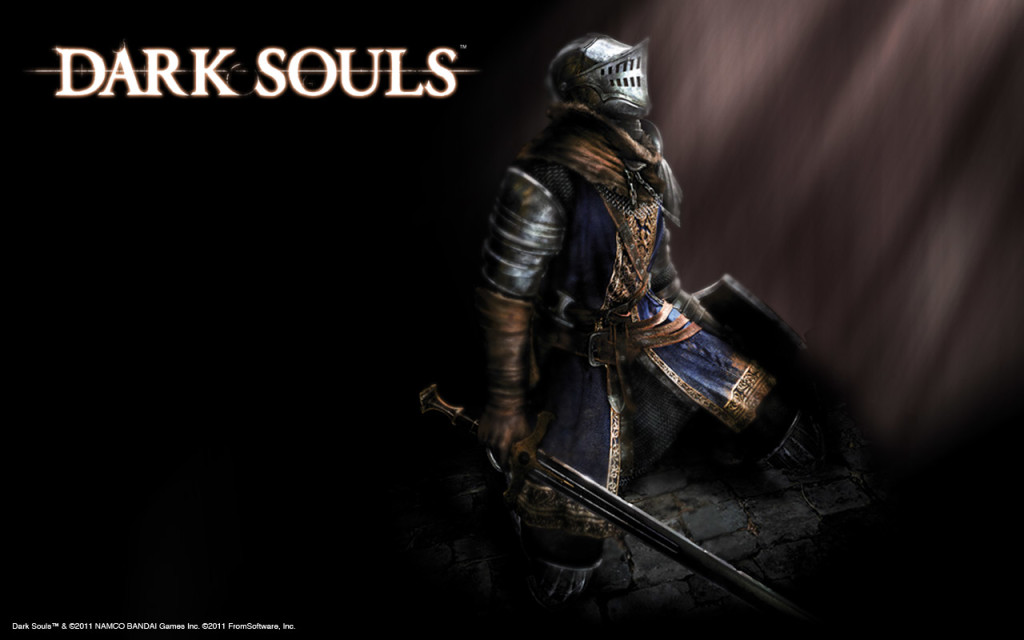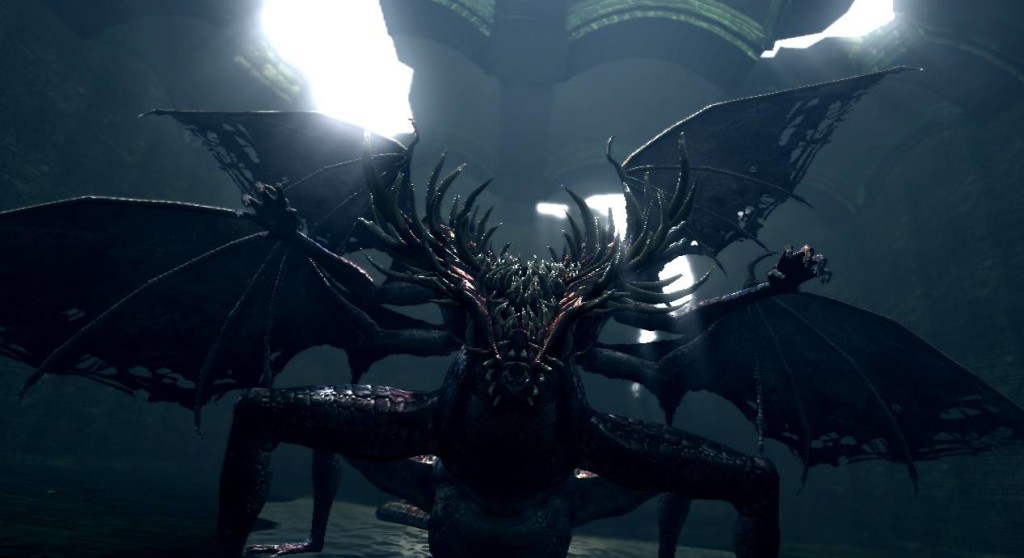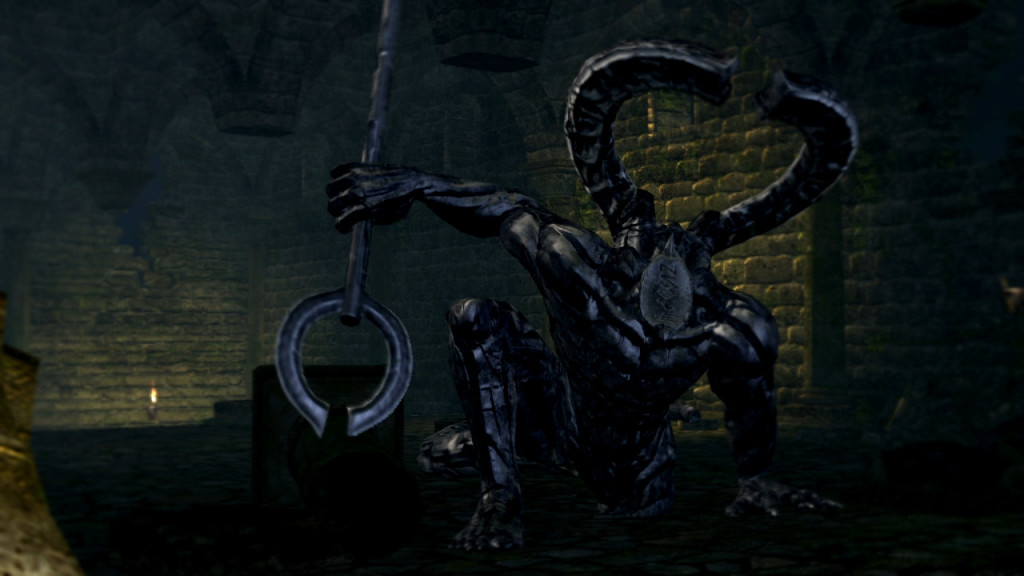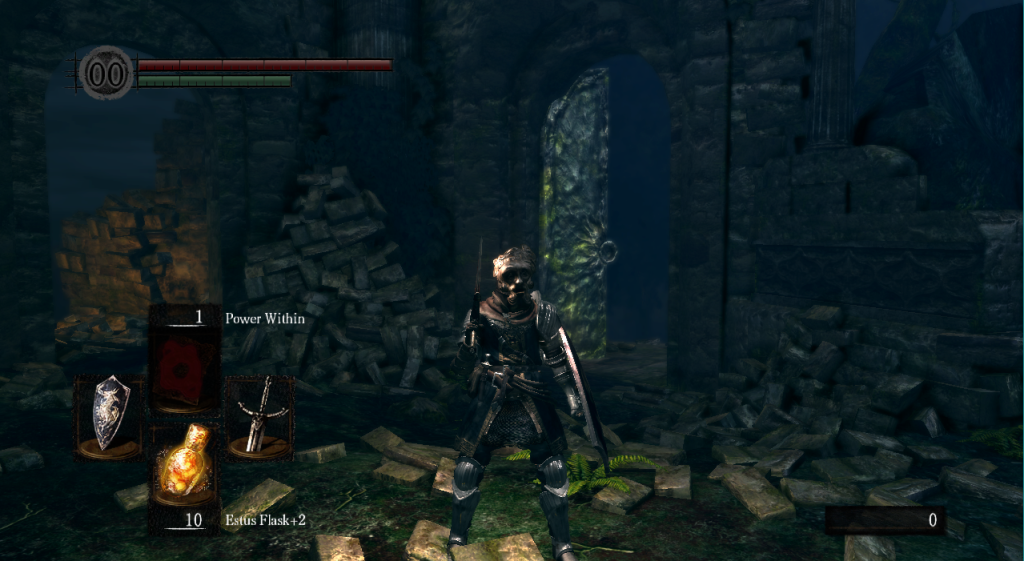Just Take my Soul: Dark Souls Review
*This game contains images that may be deemed gruesome or gory.
If you’ve heard of Dark Souls, you’ve probably heard a lot about it being incredibly hard. Well, it is, but this game isn’t something defined by its difficulty; it’s really more than that. FromSoftware’s Dark Souls is a deep, challenging, fair, and gratifying experience.
Dark Souls is an open-world, third-person role-playing game developed by FromSoftware and published by Namco Bandai originally released in 2011. When you begin the game, you choose from 10 starting character classes that determine your pre-set stats and items. You are then literally and figuratively thrown into the deep-end as you begin the game being cast away into an asylum. This is where you get a feel for the game’s controls and familiarize yourself with the mechanics. After this part, you get into the heart of the game. A giant crow (not joking) gives you a ride to the undead-laden land of Lordran and the real journey begins.
The game follows one core gameplay loop: you get to a new area that has a branching area structure, that may be connected to multiple others and it is up to you to tackle them in what order you want. The new environment that you come to is surely filled with new enemies and dangers that you will, at first, have no idea how to tackle. A lot of those enemies might be tougher than any enemy you have had to deal with before and each area contains a number of bosses that vary in difficulty. To progress, you must defeat these bosses. At various points in the loop, you will surely die.
This simple yet elegant cycle is an important part of what makes Dark Souls the game that it is. You see, when you die, you lose all the precious souls you got from defeating enemies (experience and in-game currency that can be used to level-up or buy items and spells) that you’ve held up to that point. You also lose your “humanity,” a form of empowerment in the game that lets you do many things that a felled player cannot. You then spawn back at the last bonfire (the game’s checkpoints) you’ve visited and then start from there. You can get your souls back by touching the ground where you died, but by then every enemy you’ve defeated up to that point has already respawned, awaiting you to engage them in battle. Unlike many other games nowadays, in Dark Souls, death has consequences.
With this, Dark Souls forces its player to have a mentality of learning, the learning that is done in the real world–through trial and error, assisted by your own level of curiosity. You begin Dark Souls just like you begin life—clueless and powerless. Then, through many trials and tribulations, you end up as a stronger, more knowledgeable individual who is ready to take on more challenges. An example of the challenges you might face would be unfinished-open-heart-surgery dragon:
And when you overcome a challenge, the feeling you get is truly gratifying. For example, the feeling I got after defeating the previously mentioned dragon, after dying and going through the enemies countless times, left me with a real sense of accomplishment and curiosity for what I would have to face next. You feel stronger and feel that you would be able to overcome any obstacle.
And then you run into this guy. He defeats you with one hit, and you realize you weren’t all that strong after all:
That’s not even a boss.
You don’t need to face everything on your own, by the way. You can summon other online players and some in-game non-playable characters to your world using “summon signs” located on the ground in order to help you traverse an area all the way up to the area boss, paving the way for cooperation.
Dark Souls’ story may at first seem very ordinary. You’re the “Chosen Undead” (A Dark Souls term meaning “Chosen One”) that has come to the kingdom of Lordran so that you may free it from its curse. It is very standard. But what makes the story more interesting is the various bits of lore contained within the game world. To know more about the story and the game’s characters, you have to inspect the items and weapons you come across, and pay attention to the names of the bosses, the names of the areas, and the numerous dialogs with the non-playable characters. This gives the game’s lore more depth and complexity, because every story detail isn’t just explicit; a lot of it is implied.
What makes Dark Souls truly shine is how its many underlying systems tie in with the game world to offer a truly unique experience. The battle system is easy to learn but hard to master. The game provides you with many different types of weapons: daggers, short swords, long swords, great swords, ultra-great swords, clubs, maces, bows, crossbows, and unique boss weapons. You can perform light attacks and heavy attacks with each. There are also shields that you can use to block or parry an opponent, and if you don’t like your typical close-range fighting, there are also different kinds of spells that you can cast that the game classifies into “Miracles,” “Magic,” and “Pyromancy.”. Even the way the items and spells are described and designed give nuance to the world you are in. The exploration system, which is basically “go wherever your feet can take you,” lets you appreciate the sheer level design put into this game. Paying attention to the environments can also give you more insight into the story. Everything just fits. From the sound design to the controls, mechanics, and lore, everything comes together to offer a cohesive experience that will keep you wanting to return to Lordran.
Up to this point, I’ve sung a lot about Dark Souls praises and you might be wondering: “Is this a perfect game?” Well, no, it’s not. There are some things that Dark Souls does wrong. For starters, FromSoftware did not include a way for you to easily cooperate with your friends online. This is because player summons are more or less random and solely based on faction and level. Engaging other players in combat is done in a similar manner. Second, some of the systems involved in the game might not be explained well enough to the first-time player. An explanation saying that you can only summon other players if you have attained Humanity would have been really useful. Lastly, people who pay a great deal of attention to graphics will find this game really dated. While not exactly ugly, the game’s graphics aren’t all that great, and there are occasional frame-rate dips at some points in the game.
However, what Dark Souls does wrong is almost negligible in the face of everything it does right.
The depth of the story is determined by how much you look into it; the controls and mechanics fit in together with the game’s lore and world. Dark Souls is indeed very challenging, but never unfair. It’s a game akin to a good teacher: one that provides their students with challenging work because he or she believes they can overcome it. The teacher will let you learn from your mistakes, and they will be there when things go wrong.
Dark Souls is a fine piece of work. If you yearn for the days of yore where games were really challenging and let you reap the consequences of your mistakes, if you want a game with a story that is as deep as how much you are invested in it, if you’re a fan of action role-playing games in general, and you love exploring and hitting enemies, or if you love video games in general, then this is a game that you need to play.
Dark Souls can be played on PS3, Xbox 360 or PC. You can buy the PC version of the game on Steam.





Comments